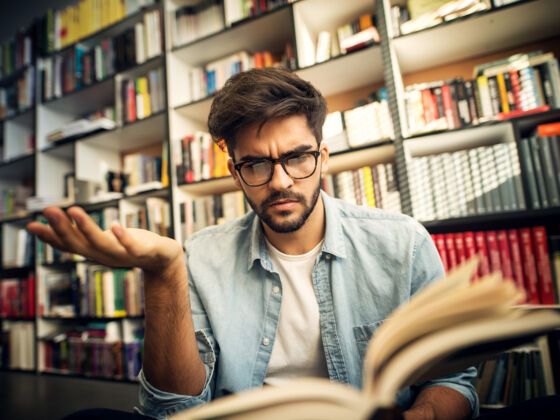The news of the possible “ban” on the Merriam-Webster’s Collegiate Dictionary Tenth Edition spread internationally and caused some outraged feedback from parents, as many felt the dictionary was not the problem. As one parent pointed out:


“That is not the worst word in the dictionary. Kids are going to be exposed to things, and it is the parents’ job to explain it to them, not the teachers’ or the school district’s (job).”
This argument is nothing new. In some places, other banned books include: Katherine Paterson’s Bridge to Terabithia, for its display of disrespect towards adults; Mark Twain’s The Adventures of Huckleberry Finn, for its use of the ‘n’ word; and even J.K. Rowling’s Harry Potter series for its use of witchcraft.
Those are just a few. Is it just me, or do the themes of friendship, youthful determination and overcoming oppression completely override any negative aspects of these books?
Some teens, however, do realize the importance of reading whatever the hell you want to read.
For example, take the girl who kept a lending library of banned books inside her locker. She encouraged students to borrow from the 62 banned books inside her locker, with everything from The Perks of Being a Wallflower to Animal Farm. The makeshift library provided students with a way to read these classics without the risk of getting in trouble with parents.
Give the girl a freaking medal.
In the end, students in southern California were given the option of using an alternative dictionary to the one temporarily removed, but are still able to use the old. Next assignment: an essay on the definition of “ignorance” and how to prevent it.
Community Connection
What do you think, is it justified to ban certain books? The dictionary?